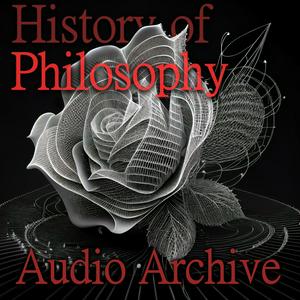Hemlock #31: McNamara's Cold War: Pulitzer Prize-Winner Bill Taubman on Vietnam, the Domino Theory, Khrushchev & Gorbachev, the Cuban Missile Crisis, the Tokyo Firebombing, Nuclear Abolition
McNamara at War is available September 23rd from Amazon! There's an audiobook as well for the audio-inclined...Summary (AI Generated, Model = NotebookLM)The podcast features an insightful conversation between host William Engels and Pulitzer Prize-winning historian William Taubman, co-author of the recent book "McNamara at War". Taubman, a distinguished Cold War expert, has also penned biographies of Soviet leaders Nikita Khrushchev and Mikhail Gorbachev. The discussion delves into the complex life and career of Robert McNamara, who served as US Defense Secretary during the early years of the Vietnam War. Topics covered include McNamara's personal biography, the controversies surrounding his strategic approach to Vietnam, his profound regrets, and his role in pivotal Cold War events like the Cuban Missile Crisis.The conversation explores McNamara's impressive pre-Pentagon career, characterized by his "brilliance" and a methodical, data-driven approach he applied at Harvard Business School and in reorganizing the US Air Force during World War II. He notably became the first non-Ford family president of Ford Motor Company. However, this trajectory of success ended with his leadership of the Vietnam War, a conflict that ultimately "mastered him". The US involvement in Vietnam was largely fueled by the "domino theory," a deeply held, though ultimately "paranoid," belief within the US government that the fall of South Vietnam to communism would trigger a cascade of communist takeovers across Southeast Asia, eventually isolating the United States. The sheer scale of the US aerial bombardment in Vietnam was staggering, with more bombs dropped than by all sides in all of World War II, leading to immense death and destruction.A significant point of discussion is the American government's perceived failure to understand its adversaries during the Cold War. Engels references McNamara's assertion in the documentary "The Fog of War" that the US had empathy for the Soviets but lacked it for the Vietnamese. Taubman, however, counters that even the Soviets, particularly Khrushchev, were never fully understood, leading to dangerous misinterpretations of his intentions in crises like Berlin and Cuba. McNamara emerges as a "tragic figure" – a man of intellect and a "highly developed moral conscience," influenced by his pushy mother and distant father, who nonetheless became embroiled in a military system that he failed to control. Despite his growing conviction that the war was unwinnable, McNamara found it difficult to express these doubts to President Johnson, constrained by bureaucratic consensus and a desire to mitigate even greater escalation from within.Fundraisers, Palestine Support, and Good Programs:Amjad Hamad and his FamilyRulin and FamilySammar and her HusbandMSF (Doctors Without Borders)Palestinian Youth MovementArticles"The Nuclear Club Might Soon Double" in The AtlanticTrump Pushing Japan, South Korea to Nuclearize (Japan Times)BooksThe Partnership: Five Cold Warriors and Their Quest to Ban the Bomb by Philip TaubmanFear: Trump in the White House by Bob WoodwardRage by Bob WoodwardPeril by Bob Woodward and Robert CostaWar by Bob Woodward and Robert CostaIn Retrospect by Robert McNamara


